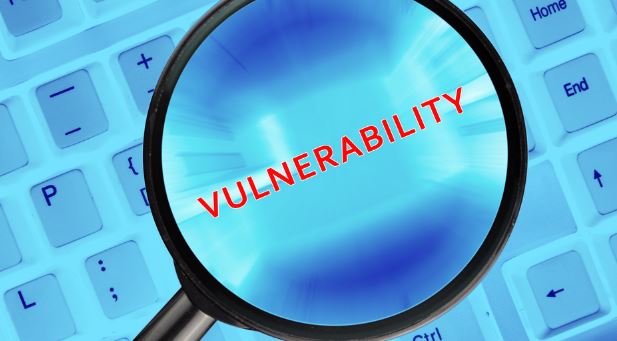Cybersecurity specialists report the finding of multiple vulnerabilities in Samba, a free software re-implementation of the SMB networking protocol. According to the report, successful exploitation of these flaws would allow performing denial of service (DoS) attacks.
Below are brief details of the reported failures, in addition to their respective identification keys and scores according to the Common Vulnerability Scoring System (CVSS).

CVE-2020-14383: A boundary error when processing DNS records allows threat actors deploying DoS attacks. A remote attacker able to create MX or NS records that can trigger the RPC service to dereference uninitialized memory, resulting in DoS attacks.
This is a low-severity vulnerability that received a 3.8/10 CVSS score.
CVE-2020-14323: A severe NULL pointer dereferences error when processing requests in winbind in Samba would allow remote attackers to send specially crafted request to winbind daemon, triggering a NULL pointer dereference error and crashing it.
This flaw got a 5.7/10 CVSS score, as it is considered a medium severity vulnerability.
CVE-2020-14318: The way “ChangeNotify” concept for SMB1/2/3 protocols was implemented in Samba could be abused to obtain change notify replies from the server. These replies contain information that should not be available to directory handles open for FILE_READ_ATTRIBUTE only. A local unprivileged user can abuse this lack of permissions check to obtain information about file changes.
This is a low-severity vulnerability that received a CVSS score of 3.8/10.
The vulnerabilities reside in the following versions of Samba: Samba: 3.6.0, 3.6.1, 3.6.2, 3.6.3, 3.6.4, 3.6.5, 3.6.6, 3.6.7, 3.6.8, 3.6.9, 3.6.10, 3.6.11, 3.6.12, 3.6.13, 3.6.14, 3.6.15, 3.6.16, 3.6.17, 3.6.18, 3.6.19, 3.6.20, 3.6.21, 3.6.22, 3.6.23, 3.6.24, 3.6.25, 4.0.0, 4.0.1, 4.0.2, 4.0.3, 4.0.4, 4.0.5, 4.0.6, 4.0.7, 4.0.8, 4.0.9, 4.0.10, 4.0.11, 4.0.12, 4.0.13, 4.0.14, 4.0.15, 4.0.16, 4.0.17, 4.0.18, 4.0.19, 4.0.20, 4.0.21, 4.0.22, 4.0.23, 4.0.24, 4.0.25, 4.0.26, 4.1.0, 4.1.1, 4.1.2, 4.1.3, 4.1.4, 4.1.5, 4.1.6, 4.1.7, 4.1.8, 4.1.9, 4.1.10, 4.1.11, 4.1.12, 4.1.13, 4.1.14, 4.1.15, 4.1.16, 4.1.17, 4.1.18, 4.1.19, 4.1.20, 4.1.21, 4.1.22, 4.1.23, 4.2.0, 4.2.1, 4.2.2, 4.2.3, 4.2.4, 4.2.5, 4.2.6, 4.2.7, 4.2.8, 4.2.9, 4.2.10, 4.2.11, 4.2.12, 4.2.13, 4.2.14, 4.3.0, 4.3.1, 4.3.2, 4.3.3, 4.3.4, 4.3.5, 4.3.6, 4.3.7, 4.3.8, 4.3.9, 4.3.10, 4.3.11, 4.3.12, 4.3.13, 4.4.0, 4.4.0rc4, 4.4.1, 4.4.2, 4.4.3, 4.4.4, 4.4.5, 4.4.6, 4.4.7, 4.4.8, 4.4.9, 4.4.10, 4.4.11, 4.4.12, 4.4.13, 4.4.14, 4.4.15, 4.4.16, 4.5.0, 4.5.1, 4.5.2, 4.5.3, 4.5.4, 4.5.5, 4.5.6, 4.5.7, 4.5.8, 4.5.9, 4.5.10, 4.5.11, 4.5.12, 4.5.13, 4.5.14, 4.5.15, 4.5.16, 4.6.0, 4.6.1, 4.6.2, 4.6.3, 4.6.4, 4.6.5, 4.6.6, 4.6.7, 4.6.8, 4.6.9, 4.6.10, 4.6.11, 4.6.12, 4.6.13, 4.6.14, 4.6.15, 4.6.16, 4.7.0, 4.7.1, 4.7.2, 4.7.3, 4.7.4, 4.7.5, 4.7.6, 4.7.7, 4.7.8, 4.7.9, 4.7.10, 4.7.11, 4.7.12, 4.8.0, 4.8.1, 4.8.2, 4.8.3, 4.8.4, 4.8.5, 4.8.6, 4.8.7, 4.8.8, 4.8.9, 4.8.10, 4.8.11, 4.8.12, 4.9.0, 4.9.1, 4.9.2, 4.9.3, 4.9.4, 4.9.5, 4.9.6, 4.9.7, 4.9.8, 4.9.9, 4.9.10, 4.9.11, 4.9.12, 4.9.13, 4.9.14, 4.9.15, 4.9.16, 4.9.17, 4.9.18, 4.10.0, 4.10.1, 4.10.2, 4.10.3, 4.10.4, 4.10.5, 4.10.6, 4.10.7, 4.10.8, 4.10.9, 4.10.10, 4.10.11, 4.10.12, 4.10.13, 4.10.14, 4.10.15, 4.10.16, 4.10.17, 4.10.18, 4.11.0, 4.11.1, 4.11.2, 4.11.3, 4.11.4, 4.11.5, 4.11.6, 4.11.7, 4.11.8, 4.11.9, 4.11.10, 4.11.11, 4.11.12, 4.11.13, 4.11.14, 4.12.0, 4.12.1, 4.12.2, 4.12.3, 4.12.4, 4.12.5, 4.12.6, 4.12.7, 4.12.8, 4.13.0.
Although these flaws pose a serious risk for potentially affected systems, cybersecurity experts have detected no active exploitation attempts so far. Samba developers have already launched a patched, so users must update as soon as possible.

He is a well-known expert in mobile security and malware analysis. He studied Computer Science at NYU and started working as a cyber security analyst in 2003. He is actively working as an anti-malware expert. He also worked for security companies like Kaspersky Lab. His everyday job includes researching about new malware and cyber security incidents. Also he has deep level of knowledge in mobile security and mobile vulnerabilities.











